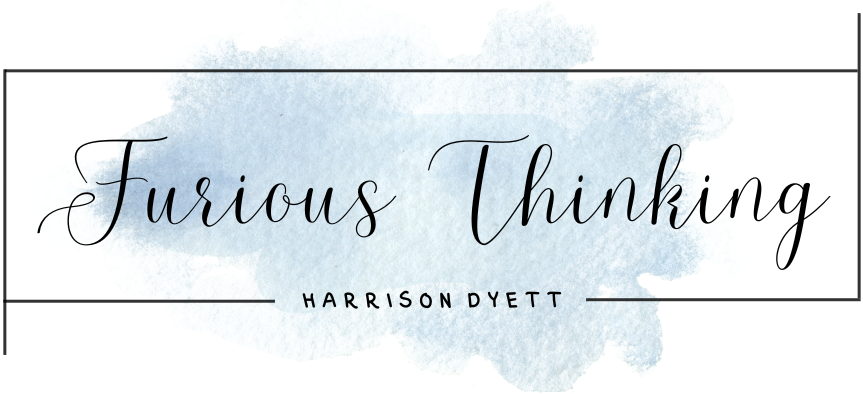Relationships are an essential part of life and can provide us with the support, love, and companionship that we need. But when relationships become unhealthy, they can lead to feelings of unhappiness or even fear. Fortunately, there are ways to ensure that your relationships remain healthy and positive. With a little effort on both sides, you can keep your relationship strong and happy! Here are four tips for maintaining healthy relationships:
Be The Best “You” Possible
Having healthy relationships starts with being the best version of yourself. It takes work to be your best, but taking steps to better yourself mentally, physically and spiritually can help you form healthier relationships with others. On the physical side, a balanced diet can provide you with the energy and nutrients necessary for optimal health. Regular exercise helps to strengthen muscles, improve balance and coordination, increase flexibility and endurance, reduce stress levels, and promote a sense of overall well-being.
Mentally, you should strive to have an open mind and a positive attitude. Having a willingness to try new things and appreciate different perspectives can not only help you in your relationships but make you more open to learning from others. Keeping an optimistic outlook on life can also be beneficial as it will give you the strength to keep going when times are tough. If you do find yourself battling any sort of demons, don’t be afraid to ask for help. Whether you turn to a trusted friend or family member or search online to see steps for overcoming an addiction, it will be well worth putting the effort in to address these issues so you can live your life on your terms.
Trust Is Key
When both partners trust each other, they are able to share important thoughts, feelings, and information in a safe and secure environment. This promotes honest communication and mutual understanding, which are vital ingredients for forming a strong emotional bond between two people. Having trust in a relationship means that both partners are able to have their own independent lives and interests, while still respecting and caring for others, which fosters personal growth, and also gives couples time to reflect and reconnect with each other once they are back together.
Trust in a healthy relationship is not just about having faith in one another, it’s also about being open and honest with each other. It’s important to foster an atmosphere where both partners feel respected and have the freedom to speak their minds openly and feel like the other person will listen and acknowledge what has been said. Once trust is broken, its effects are complex and deep-seated, stretching far beyond the immediate moment of betrayal to affect all the facets of the relationship, and it can be difficult (or even impossible) to rebuild the relationship.
Manage Conflict Properly
Conflict is an inevitable part of any relationship, and while it can be uncomfortable to experience, it can also provide opportunities to strengthen the connection between two people. As such, it is important to learn how to manage conflict appropriately in order to create a more positive relationship dynamic. One of the most effective strategies to achieve this is to identify and address the underlying cause of the tension. While arguments may seem to arise out of nowhere, they usually stem from unmet emotional needs or unresolved issues, leading to feelings of resentment and frustration that can easily boil over into an argument.
Once the reason for the conflict has been established, the next step is to work together to address it. This means having open and honest communication, being willing to compromise, and putting yourself in the other person’s shoes. It is also important to be respectful of each other’s feelings and perspectives, even if you don’t always agree. Additionally, it is important to practice active listening and fully pay attention to what the other person is saying when engaging in conflict resolution. This can help create an atmosphere of understanding, as well as show that you are invested in finding a solution.
A crucial element often overlooked is the concept of Dispositional Attribution: From Behavior To Character. The first thing to do is to steer clear of attribution errors- which means avoiding the assumption that someone’s actions solely reflect their character. Instead, consider external factors that may influence behavior, fostering a more empathetic perspective. Next, prioritize effective communication, ensuring that intentions are conveyed and interpreted accurately to prevent misattributions.
Unfortunately, at times, conflicts within couples can escalate to a point where resolution seems elusive, creating an unmanageable strain on the relationship. Take, for example, a marriage where conflicts intensify, recurring daily in the form of seemingly minor yet persistent issues. This ongoing turmoil can significantly challenge the ability to coexist harmoniously. While counseling is often a constructive step to address such challenges, there are instances where couples, perceiving minimal progress and witnessing the transformation of conflicts into toxic dynamics, may opt for a more definitive solution – legal separation. Legal separation becomes a recourse for couples navigating irreconcilable differences, offering a structured process to formally live apart. In such cases, seeking the assistance of experts in family law at Peters & May (or a similar law firm) becomes imperative. This approach acknowledges the reality that not all conflicts can be resolved within the confines of a relationship and underscores the importance of seeking professional assistance for a thoughtful and well-informed way forward.
Seek Help If You Need It
Maintaining healthy relationships requires commitment, compassion, and sometimes, the courage to seek help when faced with challenges. Sometimes these challenges can be deep-seated, especially if your partner is facing struggles with trauma or addiction. These issues can put a lot of pressure on you as well, and understanding the signs of burnout and seeking help for it is essential for your own mental health. Attending sanon meetings or visiting similar support groups can help you feel a sense of community and understanding.
When it comes to maintaining good relationships, seeking help can be an important part of the process. Whether you are in a romantic relationship, a friendship, or any other type of relationship, working with a professional counsellor or therapist can provide valuable insight and assistance. Professional therapists can offer guidance on how to understand the other person’s perspective and cultivate a deeper level of understanding. They can also help couples develop better listening skills, so that each partner feels heard and respected.
Furthermore, therapists can assist with problem-solving by helping couples to recognize and articulate underlying needs that may not be immediately apparent. By working with a therapist and addressing these issues before they become major sources of conflict, couples can develop better communication techniques, such as learning how to express thoughts, feelings, and needs in a clear and respectful way. Couples can also work on setting boundaries and expectations for their relationship, which can really help foster a sense of security, trust, and mutual respect.
However, it’s essential to bear in mind that if therapy doesn’t appear to be effective, reaching out to a skilled divorce attorney in Phoenix (if that’s where you live) might be the best course of action. This step allows you to explore legal options and prioritize the well-being of all parties involved, ensuring your own health and happiness. Remember, seeking help is not a sign of failure but a proactive step toward understanding and addressing issues within a relationship.
Final Thoughts
In conclusion, healthy relationships require effort and dedication. They are worth it in the end though for the happiness they bring into our lives. The key is to be honest with yourself and your partner, create a foundation of trust, respect each other’s boundaries and opinions, communicate openly and often, practice empathy when necessary, make time to connect regularly as well as have fun together.
With these tips in mind you can build strong relationships that will last through good times and bad. So start today by taking the necessary steps towards creating healthier connections with those around you!

